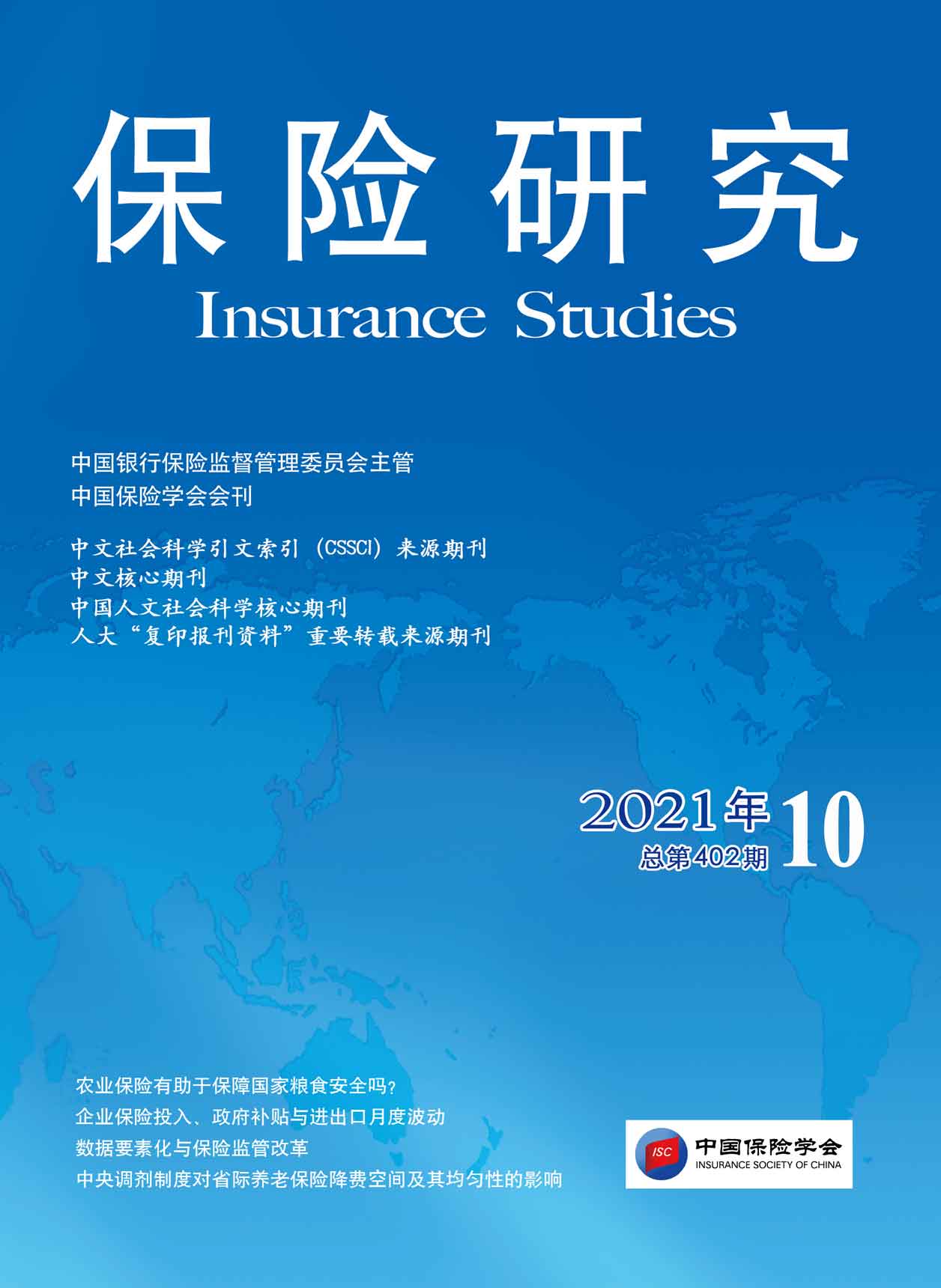
《保险研究》20211003-《损失厌恶与商业健康保险研究》(张璐、李雪)
[中图分类号]F069.9;F840.6 [文献标识码]A [文章编号]1004-3306(2021)10-0036-15 DOI:10.13497/j.cnki.is.2021.10.003
资源价格:30积分
- 内容介绍
[摘 要]本文研究了损失厌恶是否影响我国商业健康保险的参保率。首先,依据前景理论推导出损失厌恶扭曲保险购买决策的命题;其次,使用中国家庭金融调查(2017)的微观数据,运用Probit模型进行实证检验,得出与预测一致的结论。若参考点位于无保险保障框架下,损失厌恶与购买商业健康险的可能性之间呈现显著负相关关系,损失厌恶程度每增加1单位,决策者购买保险的可能性下降6.5%。无论使用替换模型、缩小样本范围、或是改变核心解释变量的度量方法,该结论都具有稳健性。进一步分析参考点位于有保险保障框架下的情形,发现损失厌恶与社会医疗保险的投保行为呈正相关,说明损失厌恶与保险需求的关系严重依赖于参考点的选择。基于以上结论,提出了抑制损失厌恶消极作用的有关建议。
[关键词]损失厌恶;商业健康保险;前景理论;参考点
[作者简介]张璐,对外经济贸易大学保险学院博士生,西北民族大学经济学院讲师;李雪,任职于中国出口信用保险公司。
A Study on Loss Aversion and Commercial Health Insurance
ZHANG Lu,LI Xue
Abstract:This paper investigated whether loss aversion affected the participation rate of commercial health insurance in China.Based on the prospect theory,we first deduced the proposition that loss aversion distorted the purchase of insurance.Secondly,we used the data from China Household Finance Survey (2017) to empirically test it with the Probit model,and found thatthe empirical evidence was consistent with the proposition.At the uninsured reference point,there was a significant negative correlation between loss aversion and the possibility of purchasing commercial health insurance.The likelihood decreased by 6.5% with one unit increased in loss aversion.This conclusion was robust whether using alternative models,narrowing the sample range,or changing the measures of core explanatory variables.Then we further analyzed the situation of the reference point with full insurance and found that loss aversion was positively correlated with the social medical insurance.It indicated that the relationship between loss aversion and insurance demand depended heavily on the location of reference point.According to the above conclusions,this paper put forward some suggestions to restrain the negative effects of loss aversion.
Key words:loss aversion; commercial health insurance; prospect theory; reference point

《保险研究》20211201-《金融监管中宏观审慎政策工具的有效性研究——基于投资业务引致系统性风险的视角》(邹奕格、粟芳)

《保险研究》20211202-《长期护理保险会挤出家庭照护吗?——基于2011~2018年CHARLS数据的实证分析》(朱铭来、何敏)

《保险研究》20211203-《参与农作物保险是否促进农户农地转入?——基于内蒙古的微观实证》(柴智慧)

《保险研究》20211204-《环境污染责任保险与企业环境信息披露》(李敏鑫、王江寒)

《保险研究》20211205-《保险诈骗罪若干问题探究》(曹顺明、杨润宇、赵瑛)

《保险研究》20211206-《<民法典>视野下保险合同第三人代缴保费问题研究》(王家骏)
